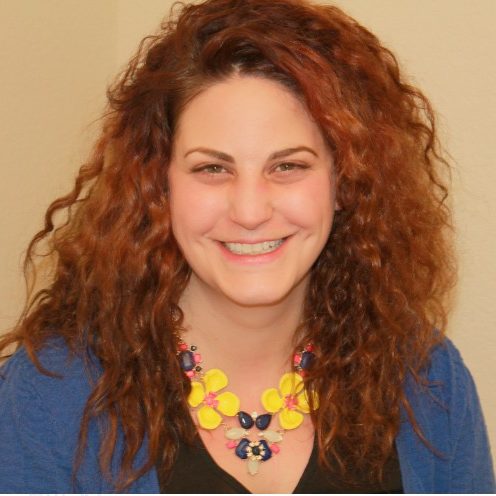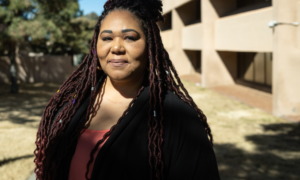 As any seasoned social worker can tell you, advocacy for the disenfranchised and vulnerable populations we serve often falls short of translating to actual revolution. Our unending activism only sometimes results in the allowance of reasonable accommodations, policy changes and the promotion of social justice and equality. In this way, social work often feels like how my father claimed to walk to school as a child — uphill both ways.
As any seasoned social worker can tell you, advocacy for the disenfranchised and vulnerable populations we serve often falls short of translating to actual revolution. Our unending activism only sometimes results in the allowance of reasonable accommodations, policy changes and the promotion of social justice and equality. In this way, social work often feels like how my father claimed to walk to school as a child — uphill both ways.
Yet social work exists almost solely to persist in the face of adversity, perpetuated by the resiliency of the individuals it serves. Social workers always know that our valiant efforts at advocacy may be stymied and our voices drowned in the systemic sea, but our energies continue on relentlessly.
Recently I had the exceptional opportunity to speak on behalf of at-risk clients in a room full of powers capable of enacting significant change. I listened carefully as the non-social workers in the room disparaged and demeaned the same individuals I am honored to advocate for. It was in this moment, and again and again in the hours of processing that followed, that I realized our world would be a much different (and better) place if everyone thought like a social worker.
Social workers have long been acquainted with the injustices of society. Since its beginning, social work has identified the crippling consequences that result from the deliberate and institutional misuse of power. Social work strives to acknowledge these consequences, understand the circumstances of individuals and communities through the lens of these consequences and provide opportunities to eliminate barriers caused by these consequences.
Presently, the institutional misuse of power and its crippling consequences are more than a threat. In a time of national transition and international turmoil, it seems particularly important to draw from the most basic principles of social work if our citizens, our country and our world hope to move forward meaningfully.
If everyone thought like a social worker, everyone would have equal worth no matter how poor, how sick, how mentally ill, how residentially challenged, how white, brown or black, how female or how foreign. Every person would be treated with dignity and respect; every person would be valued as unique and treasured. We would cherish ourselves and others. We would recognize the potential of every individual to contribute to the betterment of society.
If everyone thought like a social worker, we would respect the self-determination of each citizen. We would acknowledge that individuals have the capacity and wisdom to determine what choices are best for their own lives. We would recognize that a value system different than our own is not worth any less or any more than any other. We would not apply this lesson selectively; we would accept the opinions of others as valid and important even when different than our own. Our lives would honor our personal morals; we would freely let others live from theirs. We would support and help our fellow humans even if we did not agree with their choices. We would know that at the end of the day those people are humans just like us. We would believe that every human being is worth aiding.
If everyone thought like a social worker, justice for vulnerable and disenfranchised populations would be a reality instead of an enduring battle. Social injustices would be addressed individually and systematically to ensure the fair and equitable treatment for all.
If everyone thought like a social worker, our society would be much safer. Citizens would protect our world’s most vulnerable: the young, the old, the otherwise marginalized. Individuals who fall prey to our world’s evils would not seek such outlets if their emotional health had been safeguarded somewhere along their dissents. No one would live on the outskirts. Harm would not go away, but it would be greatly reduced.
If everyone thought like a social worker, no one would think of themselves as an expert (except perhaps regarding their own lives). We would allow ourselves to be touched by the pain and suffering of others and ourselves. We would not seek to numb this pain or alleviate this suffering, but simply to sit empathetically in it and move gently out of it. We would wash ourselves and everyone around us in compassion, understanding and kindness.
If everyone thought like a social worker, we would know that the truest form of humanity is empathy, the ability to connect meaningfully with another human. We would know that empathy is not hard when you have value for yourself and for life.
If everyone thought like a social worker, we would know that no matter how desperate, how dark, how dreadful something seems or feels, there is always hope. There is resilience, there is connection, there is intervention, there is recovery and growth.
Early in my social work career I heard a story about a type of deep sea plant that gets little sunlight and only during certain months of the year. Even still, new growths of this plant that had not yet seen light grew in the direction of where the sun would eventually shine strongest. This is to say that even the smallest energies on earth tend toward light, growth and maximum potential.
I have never attempted to research this plant or verify its existence. As it stands, this is a beautiful, useful and inspiring anecdote. I cannot help but think of our country as that plant. The sunless sea is systematic oppression and ignorance. And that sunlight, distant in its presentation but certain to return, is our glimmer of hope.
And just as that mighty plant, let us reach for the sunlight even if we cannot see it.
Let us all think like a social worker.
This is National Professional Social Work Month. Natalie Tuffield is a licensed social worker with nearly a decade of experience in community mental health and homeless services. She also writes a blog, “Mostly Tragic Tales of Dating, Living & Working in the Mile High City.”
































